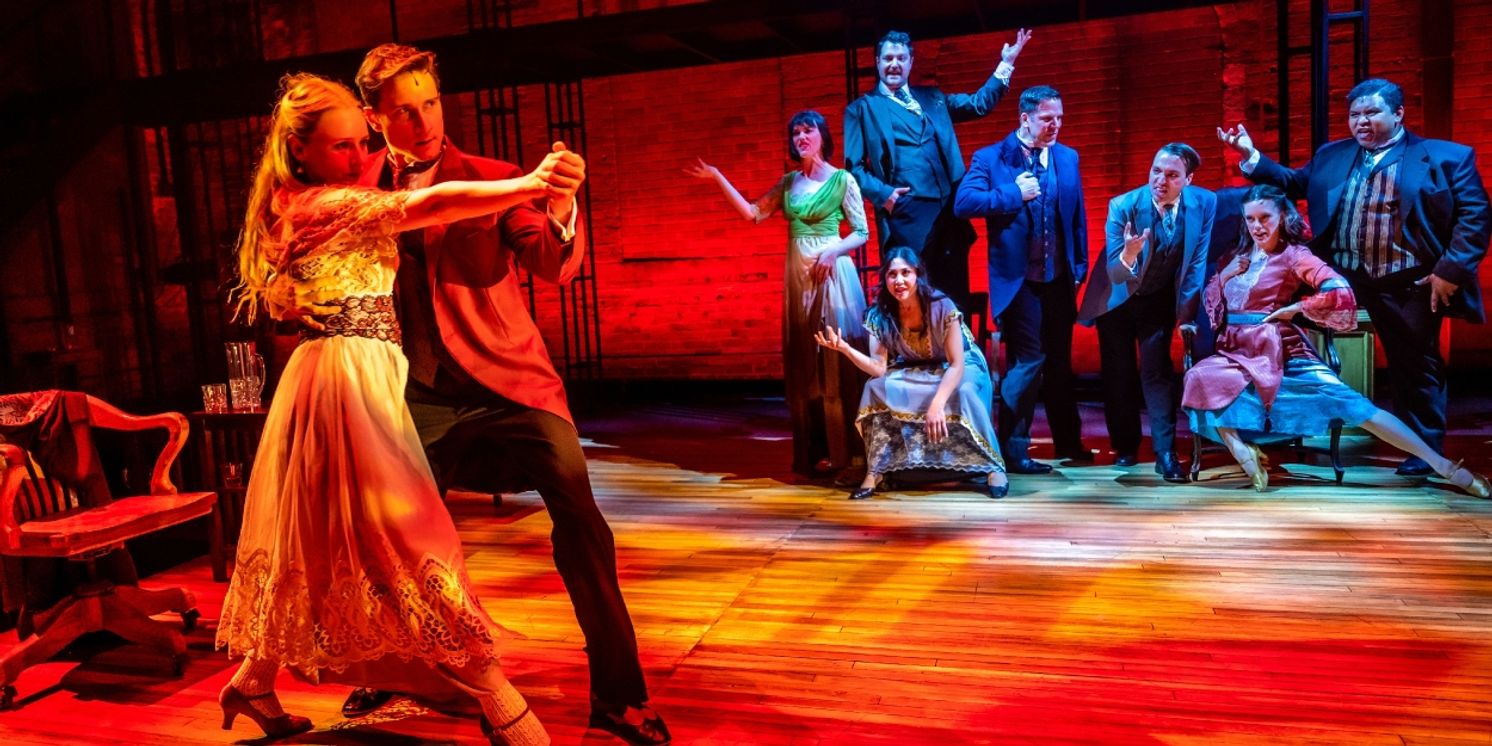Review: KELLY V. KELLY at Canadian Stage
Ambitious new musical is more than the sum of its parts.

It’s called KELLY V. KELLY, but Britta Johnson and Sara Farb’s surprisingly moving new 90-minute musical, presented at Canadian Stage by The Musical Stage Company, might as well be called CAGE V. CAGE. The two heroines of the story, a mother and daughter locked in a viciously petty legal battle over the latter’s “debauched” behaviour in 1915 New York, are both looking for some sort of control over lives that have been designed to be as small as possible.
Helen Kelly (a reserved but intense Jessica Sherman, radiating the repressed primness of Susan Sarandon in the first act of Rocky Horror), was, at the marriageable age of 19, the niece of the governor of New York. Married off to the wealthy and socially-prominent Edward Kelly, she found herself the envy of all the socialites around her – and an object of relative disinterest to her husband, a diffident businessman in his 40s. Her life is comfortable and comforting in its predictability and boundaries. Her main companion is her strategic and intelligent daughter, whose potential both impresses and scares her mother.
Meanwhile, Eugenia Kelly (Eva Foote), herself now the age her mother was at marriage, is discovering a new way to live with the help of three friends, who sense the potential of women’s suffrage in the air. In the meantime, however, they show her the wonder of New York’s underground tango bar scene, where women can pay attractive young men to show them the ropes and a good time.
Kelly’s heavy purse attracts the attention of the club’s most popular dancer, Al Davis (Jeremy Walmsley); as they share a whirlwind tango of a courtship, it’s unclear whether he falls in love with her or her money. Mrs. Kelly is determined to prove it’s the latter, and seeks to tamp down on her daughter’s newly willful behaviour, keeping her at home – even if she has resort to publicly humiliation to do it.
Based on a real legal case, Johnson and Farb’s musical is a tight, constantly-moving 90 minutes that never outstays its welcome. Directed with smooth, stylish choreography by Tracey Flye, it styles the legal proceedings as a kind of tango of their own, where your partner might be quick to drop you if you miss a beat. Johnson’s tunes are catchy and memorable, and her lyrics often quite clever in their use of imagery and wordplay.
The musical asks whether being “chosen” is the same thing as actually having a choice, suggesting that seeking to conform to societal expectations or to break them at all costs can create a cage of one’s own making.
Sherman and Foote make a well-matched pair, the differences in their body language creating a generational divide. The differences between the two reduce the more that Helen reflects on her own hopes and dreams as a young woman, with increasing regret at the life she was directed to lead and the fact that it has left her with little power to change it. Helen’s brittle, imperious exterior is contrasted by Eugenia’s youthful derision and confidence, but both are a front: Helen’s, for her pain and fear at being abandoned, and Eugenia’s for her inexperience and vulnerability, characterized by a nervous, unselfconscious giggle whenever the mask cracks. Most often, it cracks in moments of fragile but believable chemistry with Walmsley’s very clean-cut bad boy, as he manages to quickly charm her into imagining their future.
Even Helen’s respect and wealth only gets you so far, as she’s reminded by Mike Jackson, superbly oily in his portrayal of both the misogynist justice who presides over the case and of Helen’s late husband. This double-casting is both practical and a commentary on how these rich, narcissistic, untouchable men are all cut from the same cloth, ready to be a confidante and even a friend until the moment his power or authority is threatened.
He’s joined by Joel Cumber’s perfect weasel of a lawyer, who recoils in horror at the thought of an independent woman or when his lofty credentials are questioned. His increasingly absurd assurances that he knows at least one woman personally are very funny, giving the men’s behaviour a badly-needed satirical dimension to its otherwise somewhat on-the-nose social commentary that musical theatre slips into very easily.
While the focus on the central relationship is essential, it would be nice to give more space to Eugenia’s three friends, the jealous femme fatale (Margaret Thompson), the hanger-on (Kelsey Verzotti), and the childhood bestie (Julia McLellan), particularly the last. Making their relationships clearer would lend more depth to Eugenia’s desire for a different life, and would add emotional heft to their later support or betrayal of her cause, particularly in a beautiful, montage-like number near the end which reiterates her bid for freedom.
In the end, KELLY VS. KELLY is about that unique relationship push-pull of need and independence between mothers and daughters, but it’s also about how that relationship has always been shaped by the outside forces of a world designed to see their gender’s role as something lesser. In focusing on their relationship conflict to comment on the world outside it, the production becomes something more than the sum of its parts.
Go support new Canadian musical theatre and try a dance.
Photo of Eva Foote, Jeremy Walmsley, and cast by Dahlia Katz
Reader Reviews
Videos

